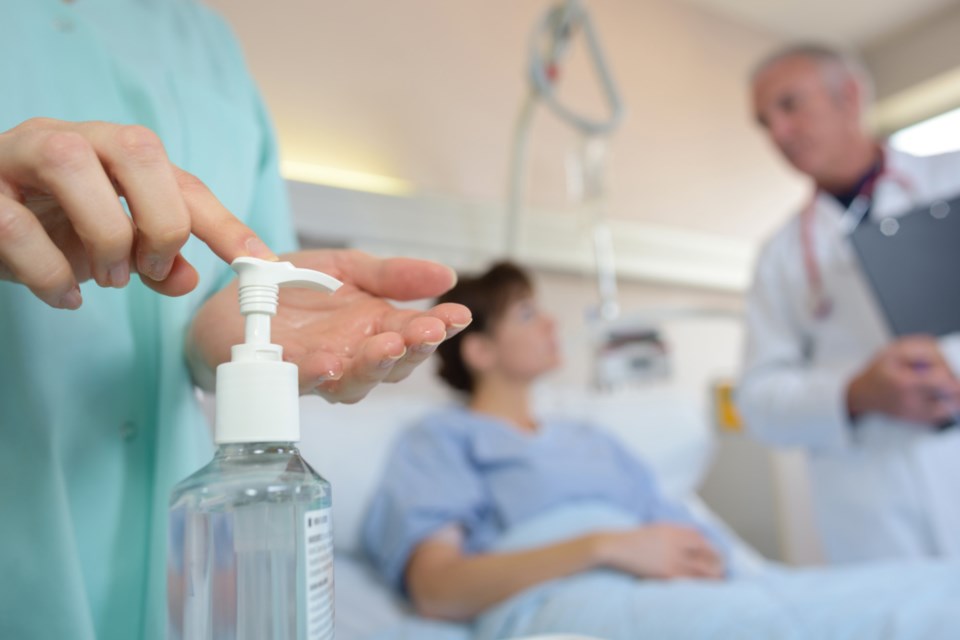War Memorial Hospital (WMH) is among the dozens of Michigan hospitals at or close to reaching full capacity, creating challenges when treating and transferring patients..
“We are surviving, and we hope to continue,” War Memorial Hospital President and CEO Dave Jahn said.
Meanwhile, a desperate emergency doctor called 27 hospitals throughout the state on Wednesday. Not one had an extra bed available for critical patient care.
“When we try to send patients to other hospitals for treatment, they are full,” Jahn said. “It used to be that we could reach out to another hospital for patient care. That’s not true now. People come to the hospital expecting instantaneous care, but they are not getting that at this point.”
Non-emergency patients will be assessed for the appropriate level and type of treatment needed. If further or intensified treatment is determined necessary, the patient will stay in the emergency department until further notice.
“We would provide the best care possible but if the patient needed something we don’t have, they would stay in the ER until we found somewhere for them to go,” said Jahn.
An example could be the removal of a cerebral blood clot, when transfer for surgical procedure is required as soon as possible.
State data updated yesterday showed 41 Michigan hospitals above 87 percent occupancy, with numbers pointing to COVID as the primary culprit.
“Our COVID unit holds 12 patients, and we have 13,” said Jahn. “One is in our Intensive Care Unit (ICU).”
To end the month of December, only 30 to 35 of the hospital’s 49 beds were in use due to staff shortages. Today, Jahn stated that 27-hospital staff are currently out with COVID.
He confirmed this staff shortage to be the highest it has ever been.
“When our own staff members get sick, they are out for 10 days,” said Jahn.
In immediate need of healthcare workers, Jahn agreed with the Centers for Disease Control and Prevention’s (CDC) modified guidelines that decreased quarantine from 14 to 10 days without symptoms.
“Some were vaccinated and showing mild symptoms, but they still can’t work,” he said.
According to Jahn, fully vaccinated employees who contracted COVID have not exhibited harsh symptoms and zero have needed hospitalization. This does not appear to be the case with the unvaccinated.
“All 13 COVID patients are unvaccinated,” said Jahn. “No one who has been vaccinated has had to be admitted.”
The CDC Data Tracker shows 70.1 percent of county residents over the age of five to have been fully vaccinated with boosters.
Some unvaccinated individuals have asked, “Why get the vaccine if you will still get COVID?” Jahn’s response to this inquiry was that vaccines have proven to be 85 percent to 90 percent effective.
Many women have asked about complications resulting from vaccinations. Jahn referenced recent recommendations from the American Association of Obstetricians and Gynecologists Foundation, encouraging women to get vaccinated.
Others have argued that the virus does not have a great effect on younger, healthier populations.
“In the beginning that was true,” Jahn said. “It was impacting older people more than younger people. You were at high risk if you had preexisting conditions. Over the past month, two different adults in their 30s who were unvaccinated had to be put on ventilators.”
When this happens, the chance of survival is 10 percent.
“When someone is discharged, we call it a Christmas miracle,” Jahn said.
Currently, the individual on hospital ventilation is in their 30s.
In order to help mitigate and prevent the spread of COVID within the hospital, patients and staff are required to wear masks and sanitize. Social distancing has also been enforced.
“We have tightened restrictions for visitors and staff,” said Jahn. No one can eat together at the cafeteria anymore.”
The CEO has reminded everyone that Type A Influenza is making its rounds as well during this winter season.
“This is a critical time,” Jahn ended.
War Memorial asked that community members to reach out to their primary care provider for other non-emergent medical needs. Those looking only for a COVID-19 test are encouraged to use the State’s free testing site at the E-Free Church or other local pharmacies and clinics that are offering testing.
Emergency needs can include choking, head injuries that include loss of consciousness, fainting or confusion, injuries to neck or spine, electric shock or lightning strike, severe burns, severe chest pain or chest pressure, seizures that last three to five minutes, and cessation of breathing or respiratory distress. Individuals experiencing symptoms like this are encouraged to call 911 to request a local emergency team responds.
Emergency needs that warrant a trip to the Emergency Department, or a call to 911 for assistance can include trouble breathing, loss of consciousness, pain in the arm or jaw, unusually bad headaches particularly with sudden onset, sudden inability to speak, see, walk or move, sudden weakness or drooping on one side of the body, dizziness or weakness that will not go away, inhaled smoke or poisonous fumes, sudden confusion, possible broken bones, deep wounds or serious burns, severe pain anywhere in the body, allergic reactions, high fevers with a stiff neck, uncontrolled vomiting or loose stools, poisoning or overdose of drugs or alcohol, suicidal thoughts or seizures.
The WMH Community Care Clinic located at 509 Osborn Blvd is open seven days per week from 9 a.m. – 6 p.m. The WMH Community Care Clinic accepts walk-ins only and can be reached at 906-635-4401.
